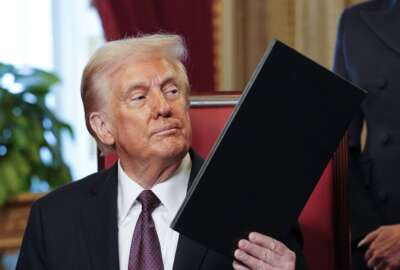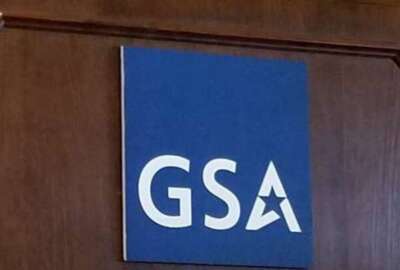Presidential appointees face long, winding road to confirmation
No matter who wins the Presidential election, non-career officials who might one day serve in either an Obama or Romney administration will face a cumbersome...
wfedstaff | April 17, 2015 4:13 pm
More than a month out from the Presidential election and the outcome of the race is still far from certain. But at least one thing is sure: Non-career officials who might one day serve in either an Obama or Romney administration will face a cumbersome appointment process that is just starting to be reformed.
Linda Springer, who served as the head of the Office of Personnel Management during the George W. Bush administration, told In Depth with Francis Rose the onerous Senate confirmation process for political appointees has been a longstanding issue.
“First of all, I don’t think there’s anyone that would disagree that the process takes too long,” said Springer, now the executive director of Ernst & Young’s Government and Public Sector division.

Up until the mid-1980s, nearly half of a President’s appointments were filled within two months of taking office, according to a memo by James Pfiffner, a professor of public policy at George Mason University presented at a National Academy of Public Administration event Monday. It took President Barack Obama a full year in office to fill just more than 64 percent of the executive branch positions requiring Senate confirmation, according to Pfiffner’s memo.
Springer, who also spoke at the NAPA event, said now is the perfect time to once again address the issue.
“I think that as a new term of office or potentially a new administration comes in, it’s a good time to look at it, and that’s what’s been going on,” Springer said.
Common ‘speed bumps’
Part of the problem is sheer workload. The President is responsible for nominating 3,000 people to fully staff the executive branch, 800 of whom are in positions that require Senate confirmation. The President also typically appoints about 800 non-career Senior Executive Service members and another 800 Schedule C appointments, which increasingly are being vetted and appointed by the White House, according to the memo.
Springer cited a number of “speed bumps” that slow the process, including the practice of senators placing holds on nominations that have very little bearing on the actual nominee’s fitness for a particular role.
In that case, the simplest fix is limiting the number of appointments that require Senate confirmation, Springer said.
The 2011 Presidential Appointment Efficiency and Streamlining Act, introduced by Sen. Chuck Schumer (D-N.Y.), and signed into law by Obama last month, does just that, culling by more than 160 positions the list of jobs requiring congressional approval.
Streamlining paperwork
The law also required streamlined paperwork and better information sharing between the Office of Presidential Personnel (OPP), the little known White House unit tasked with helping an administration bring in fresh talent, and the Senate confirmation committees, which both require much of the same information.
“So, having a common repository of data that could be accessed for both reviews would be one of the things that could help streamline it,” Springer said.
In a separate commentary Berkeley Law professor Anne O’Connell wrote that lawmakers shoulder a great deal of the blame for the broken confirmation process, regardless of which party controls the chamber.
“The majority party often has not made confirmation of agency leaders a sustained priority,” she wrote in the memo. “The minority party has placed procedural obstacles in the confirmation process, knowing that they would only delay but not stop certain nominations from going through.”
O’Connell recommended requiring a self-imposed three-month time limit on Senate deliberations of a nominee.
But Springer suggested putting some teeth behind the proposal by putting a co-called “deemer provision,” at the end of that three-month timeframe window that would required automatic approval after the time limit expired.
“Some people think that that’s not likely or not a practical suggestion,” Springer acknowledged. “But if that were in place, I really think that would help speed the process up.”
RELATED STORIES:
Senate votes to require fewer confirmations
Bill to cut Senate confirmations gets final action
Obama recess appointments face legal challenge
Copyright © 2025 Federal News Network. All rights reserved. This website is not intended for users located within the European Economic Area.





